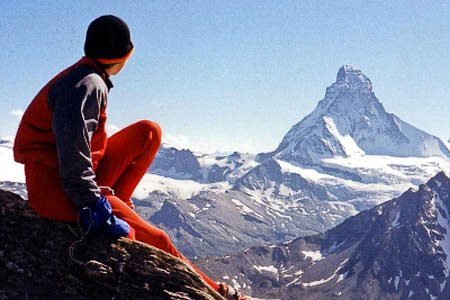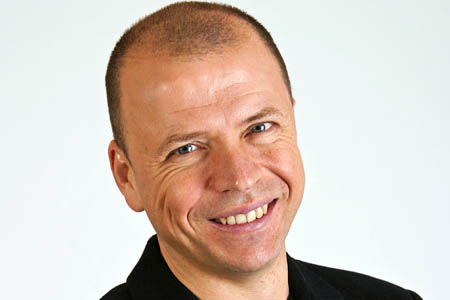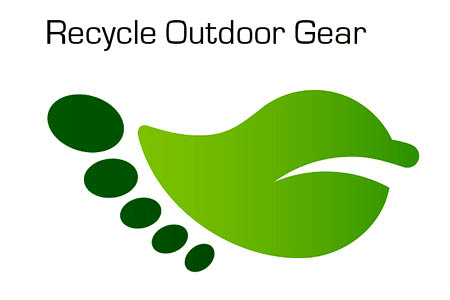
Don't bin your gear: recycle it, says Sarah Howcroft
How green is your outdoor gear?
No, not the colour; do you ever consider the environmental consequences of the clothes and equipment you use, or the trips you make to the mountains and moorland to enjoy your outdoor pursuits?
There are moves afoot to acknowledge the effects our outdoor activities have on the very surroundings we treasure and which are one of the main reasons for our enthusiasm in the first place.
All that fancy waterproof clothing, for instance, is likely made from synthetic materials which deplete the world’s limited resources; it is probably made on the other side of the globe and shipped here, again using finite fuel reserves; and then we jump in our cars or even on a plane to get to the destinations where we can enjoy the wild lands and adrenaline pursuits we crave.
And therein lies the paradox. As Andrew Denton, chief executive of the Outdoor Industries Association, points out: “There is a deep inconsistency in the outdoor industry. On the one hand we are thought of as a bunch of tree-hugging, environmentally active, hillwalking Patagonia-wearing ‘greenies’, yet on the other many of us will get on an aeroplane to ski down that receding glacier; will drive to the Lakes or Scotland, climb the warming snow and ice, and will launch new collections and new products year after year risking waste and change before change is needed.”
The outdoor industry is slowly waking up to this conundrum and the OIA’s conference earlier this year began a process of looking at how manufacturers, retailers, activity providers and all the other companies can begin to address the issue.
As Andrew Denton puts it: “There is a demand in the market for outdoor pursuits and the gear to enjoy them safely in.
“Indeed the love of the planet that motivates many a sustainability enthusiast or eco-campaigner is the same love of wilderness and mountains that fires the outdoor industry. If our industry, built by users, enthusiasts and an authentic love for the land were to disappear, then the replacement could be so much worse?”
Step forward Sarah Howcroft. Ms Howcroft was a co-founder, 41 years ago, of clothing brand Rohan. Now, she has launched Recycle Outdoor Gear, a website where owners of used outdoor gear and clothing can advertise it, without charge. Equally, those on the lookout for a piece of used gear can post a wanted ad.
She is particularly keen for charities to benefit from the scheme.
The entrepreneur, who lists her hobbies as mountain biking, walking, yoga and social and environmental issues, said: “I have been involved with the drive for more sustainable business practices for many years. ROG is a tool to help this.
“I have a lot of experience in creating and running web-based resource exchanges for business-to-business so ROG was a natural step.”
What did she hope to achieve in setting up Recycle Outdoor Gear? “Lots!” she replied. “More reuse of good quality outdoor gear, less waste; opening up the opportunity to experiencing really good gear for more people.
“This is why ROG encourages wanted listings as well. It’s very important for youth and community groups to locate good gear.”
But she sees the site as more than this. “All this is great but above all I hope ROG will over time represent best practice by an industry to collectively address some of the more unsustainable problems within the industry.
“I do believe this is the only way we will see sustained progress.”
The OIA’s Andrew Denton supports the project. “On a world stage,” he said, “especially through the work of Patagonia founder Yvon Chouinard, retailer Mountain Equipment Co-op and the One Per Cent for the Planet Foundation, the outdoor industry has a very strong eco positive image – and that image no doubt helps us sell kit.
“At its most cynical it is commercially positive for us to support and endorse the green movement, to associate our brands with that group and lifestyle consumer.
“Yet there are many people in our industry who passionately believe in the sustainability agenda. They are anything but cynical, going out of their way to do the right thing, regardless of profit.
“The harsh reality is of course, if there was no skiing or new ski resorts, no flights to go climbing, no new product made each year, no huts in the mountains, we would leave a cleaner greener footprint – so what to do?”
Sarah Howcroft sees her new website project as a start. “I do believe this is the only way we will see sustained progress.”
The OIA boss said: “The trick then, in walking the ‘Fine Patagonian Line’, is to use the position of responsibility we have as market leaders, to work with our customers and partners in ensuring best practice, and to build sustainable outdoor gear that lasts.
“It is also to promote the use of the UK’s wonderful outdoors rather than stepping on a plane every time you want to go climbing; to develop fabrics and trends such as recycled polyester fleece or organic cotton that then flow into more mainstream fashion clothing.
“We accept that we live in a consumer-driven world. Perhaps it is possible to grow industries more sustainably, rather than just to walk away from the issues or to take the ‘ostrich in the sand’ approach to the environmental challenges of today.”
Sarah Howcroft sees ROG as part of this move towards the industry taking on some of the criticism that it could do more to help conserve the environment. “Certain companies within the industry try very hard. It worries me that an industry can only be judged by its weakest member with regard to the drive for more sustainable business practices.”
“ROG is available for every company working in the outdoor industry to make their own customers aware of the service and encourage them to use it.
“In that one act they will have done a great deal to address some of the negative accusations levelled at the outdoors industry. ROG empowers the customer to make their own decision as to what happens to their outdoor gear when they no longer have any need for it.”
Examples of gear that can be listed on the site are: climbing and walking boots, skis, tents, and waterproofs all types, canoes, bikes, and rucksacks. Anything with an engine is banned as are weapons of any description, hunting and fishing gear, barbecues and any real estate.
Ms Howcroft says the site was not set up to make her profits. “It’s not all about money. In ROG’s case it is about fulfilling its function. It’s not about making money.
“ROG represents the first in a number of initiatives that I am planning to make available to help address the drive towards a more sustainable industry.”
Her old company Rohan is supporting the move, along with other OIA members. She said: “I am Rohan’s number-one fan and the surviving member of the original two Rohanists.
“Early Rohan represented the two founders’ principals; mine haven’t changed.
“Chief executive Colin Fisher and brand director Tim Jasper have been very supportive of all my ideas with regard to our industry. Rohantime, home of the Rohan community and the Rohan Community Forum represent two of these.
“ROG is different in so much as it is a Sarah Howcroft service but never the less their joint encouragement is fundamental to me and deeply appreciated.”
She says the service on ROG is free and there are no plans to charge.
She hopes in the next year to see a growth in the number of ads, accompanied by lots of articles on the topic of reuse and recycling within the whole of the great outdoors community. She wants the site to be a place to learn and interact on the topic of recycled outdoor gear.
Andrew Denton again refers to the Patagonia model, which has led the way in encouraging outdoor enthusiasts not simply to pursue having the most up-to-date gear.
He said: “With ROG we are trying once again to walk that fine line – the ‘greenest’ jacket you have is the one you already own; if it does the job then you have no need of a new one.
“That purest approach however does no good to the industry selling you kit. It stifles development and innovation, denies donations to mountain rescue and environmental causes, and means the outdoor adventurer who wants the best, latest outdoor kit for their own trips is compromised.
“Here now at ROG you have an option, swap, donate, move around outdoor kit – enable more people to get outside, less well off adventurers, young people, groups and schools. That new jacket you really want you can buy still, but now you have the option to pass on your old faithful rather than leave it rotting under the stairs.
“Yes it’s a fine line. There are no clear-cut decisions in an industry that supports a strong sustainable ethic, but with ROG perhaps we are moving one step nearer a compatible, commercial option that is both environmentally sustainable, yet commercially aware.”
For Sarah Howcroft, it is important to get people using the site. “To date we have a lot of lookers and an equal number of people registering,” she said. “The value of any service is only as good as the amount it is used.”
She is evangelical about the project. “All outdoor companies, manufacturers, retailers, outdoor centres, climbing walls, media any organisation can you please help spread the ROG word.”
For details and to sell or buy, see the Recycle Outdoor Gear website.



Hendrik Morkel
15 November 2011Netcycler.co.uk is web-based swap service, which allows people to swap unused "stuff" - from outdoor gear over books to electronics. The advantage of Netcycler in comparison to ROG is that instead of a one-one one trade, Netcycler allows swap rings of up to five persons, and fosters local exchange of items instead of sending them over the country (although, thanks to the integrated shipping service, that's possible as well!).
I'd recommend giving Netcycler a try if you want to get rid of unused outdoor gear!
Bob Malonye
15 November 2011Morkel don't have a pop at another service eveybody's working to the same end of reducing waste and encouraging reuse.
Terri Dwyer
15 November 2011It's good to see the OIA supporting a reuse, recycling initiative. At Last!
Andrew Denton
15 November 2011Thanks for all the coverage on this project guys - we are really proud to be involved at the OIA, and hope everyone will spread the word and use the site!
Hendrik Morkel
16 November 2011Malonye, manners?
ROG is built on, if one can say built in that respect, on top of a 60$ Wordpress Widget. We use the same widget since over a year for the free of charge Nordic Lightpacking Gear Swap site where users can list their gear and wishes. So ROG is barely new nor innovative, sorry. The site has some industry support which puts it apart, that's it.
Other than that, any outdoor forum offers the same service in its selling/ looking for sub-forums.
Just saying how I see it. A good idea, though not novel in any way.
Sam Darcy
17 November 2011Morkel manners... not
What is your problem man.. Just saying how you see it.
Take the blinkers off and stop eating the sour grapes.
You've obviously got a few issues you need to work out.
Remember no one loves a begrudger
bob
02 February 2012The first step in recycling is to re-use. You can sell it on (GearTrade.com). There are even apps to re-use your outdoor gear